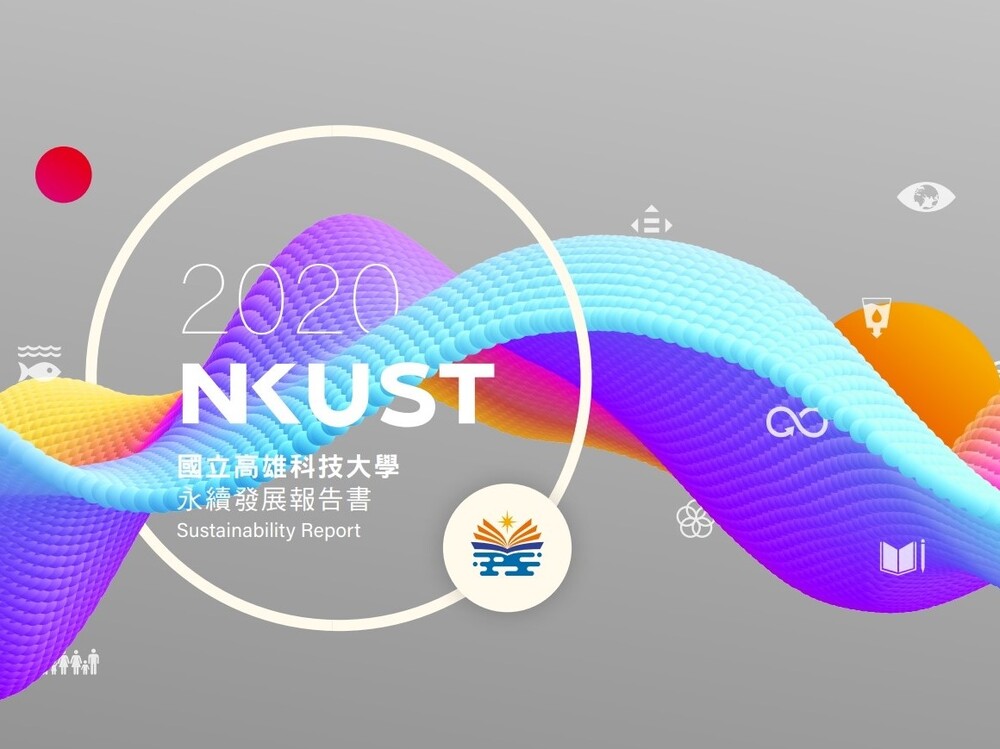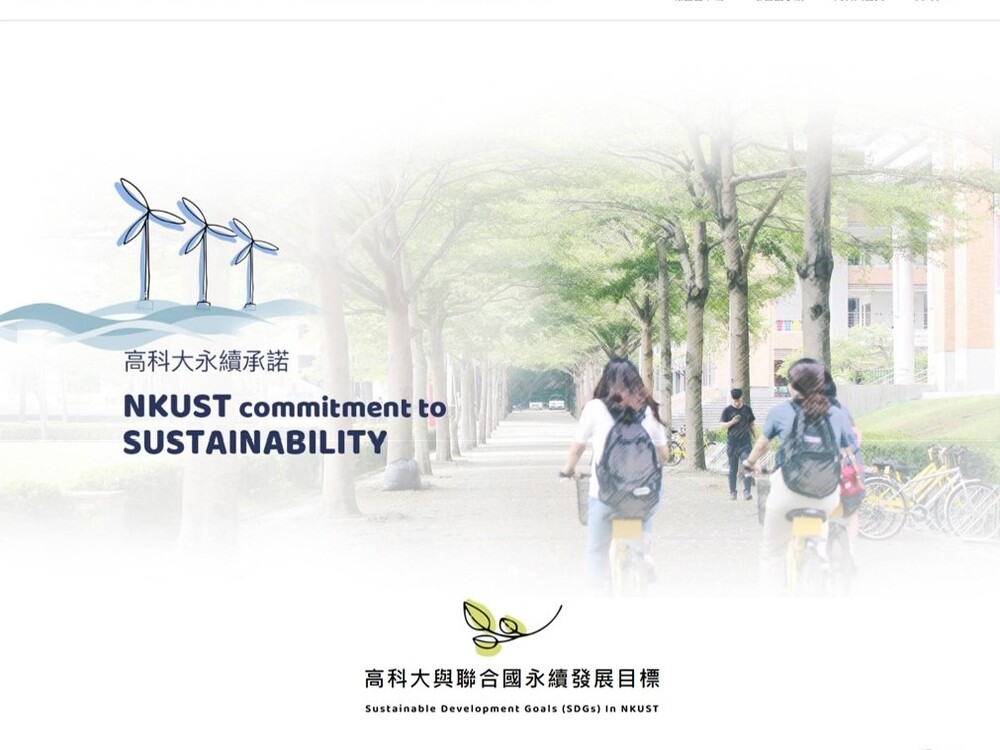2020 NKUST Sustainability Report: Becoming a Carbon-Neutral University


Release Date 20 June 2022 Mandarin
In 2021, as NKUST entered its 4th year after the merger, the University published its first sustainability report, “2020 NKUST Sustainability Report” to declare its determination on the practice of the concept of sustainable development.
NKUST has drawn up a sustainable development blueprint for 2030. Through a variety of aspects, including education, research, industry-academia collaboration, and campus construction, the University is actively planning to promote research and applications in the fields of energy-saving and green energy, aiming to approach the 17 Sustainable Development Goals (SDGs) on the campuses and to reach carbon neutrality by 2028.
The University follows the path alongside Taiwan and the world on the road to motivate sustainable development. Sustainable governance is an essential core value for the University to promote sustainability now and in the future. Besides, cultivating talents and doing social responsibilities are also key sustainable strategies for the University. This sustainable report includes the UN’s 17 SDGs indications and our commitments to make a difference in society through our teaching, research, environment, social engagement, governance, and other relevant aspects.
The University has referred to two books, Getting Started with the SDGs in Universities, Sustainable Development Solutions Network and SDG Sector Roadmap, and World Business Council for Sustainable Development, to identify critical five steps for the University to prevail in its SDGs. These steps focus on areas in which NKUST has the most impact and contribution to formulating its strategies and action plans for sustainable development.
This report elaborates on the six key SDGs conducted by the University: SDG 4 Quality Education, SDG 8 Decent Work and Economic Growth, SDG 9 Industry, Innovation and Infrastructure, SDG 10 Reduced Inequalities, SDG 11 Sustainable Cities and Communities, and SDG 14 Life Below Water.
To reach these targets, the University works hand in hand with stakeholders on and off campus to give a vital makeover on the following four dimensions: Academic research, Social engagement, Teaching and Student Affairs, and Campus operations. All stakeholders collaborate to make the most out of the development opportunities of SDGs and move towards a sustainable future based on shared values.
In this report, the University has taken actions in response to the increasing importance of sustainability issues such as university governance, environmental protection, and social engagement.
For this, it unfolds the efforts accomplished by the University on research, practices, and achievement of sustainable development. These efforts are made through teaching and research, innovative ideas, a sustainable environment, administrative planning and implementation, public participation, and leadership.
First, in terms of university governance, the University actively offers sustainability courses and activities.
Next, for environmental protection, the University introduces the idea of a smart green campus. In the view of this, the University encourages the community to reduce the impact and damage to the environment through daily practice, including the management of energy, air, water resources, and waste. In addition, the University has set up food safety management to guard food safety for community members. It also invented many smart technological systems to make the University a convenient, safe, and energy-saving place for all residents.
Finally, for social engagement, the University takes active action to launch many University Social Responsibility (USR) projects that support local industries, communities, cities, and rural areas.
As the biggest contributor to regional revitalization and sustainable development, the University engages in and inspires students, faculty members, and individuals from the industry, academia, and civic groups to participate as volunteers to tackle problems faced by local industries, communities, cities, and rural areas.
Comprehensive university governance is the cornerstone of the university’s continuous operations. Therefore, every NKUST member is a significant driving force and core player in realizing university governance and strengthening the overall organizational structure.
The report summarizes the effort of every NKUST member. In addition to taking on the mission of global sustainable development, we set clear goals and priorities for change with the hopes of making more positive and concrete contributions to sustainable development.
Meanwhile, the University accepts the observation from society to review our progress on sustainable development and urge us toward the ultimate goal of fully adopting renewable energy on campus.
Further Reading
Download NKUST Sustainable Report
Translated/Edited by Jess Lin
